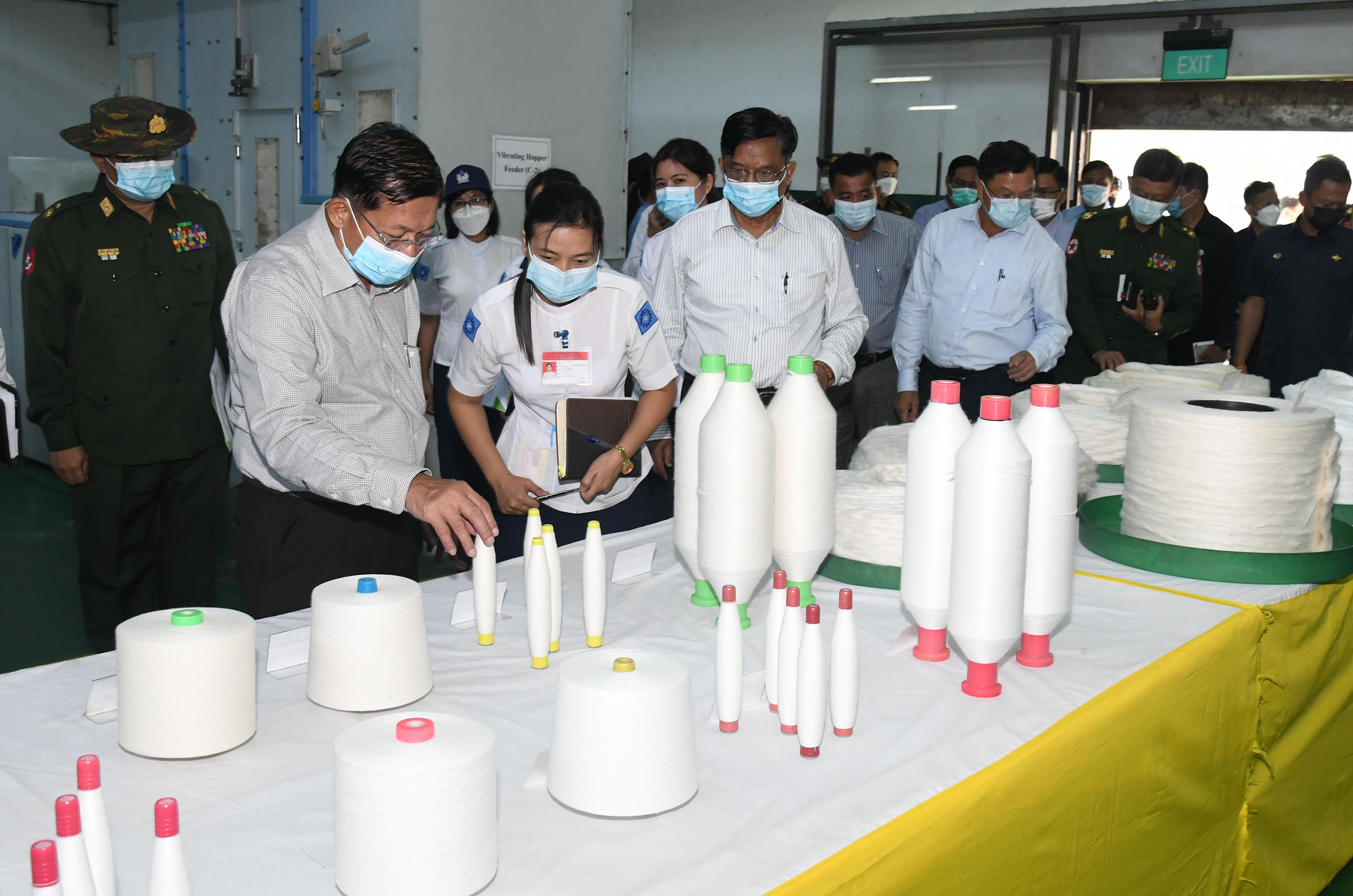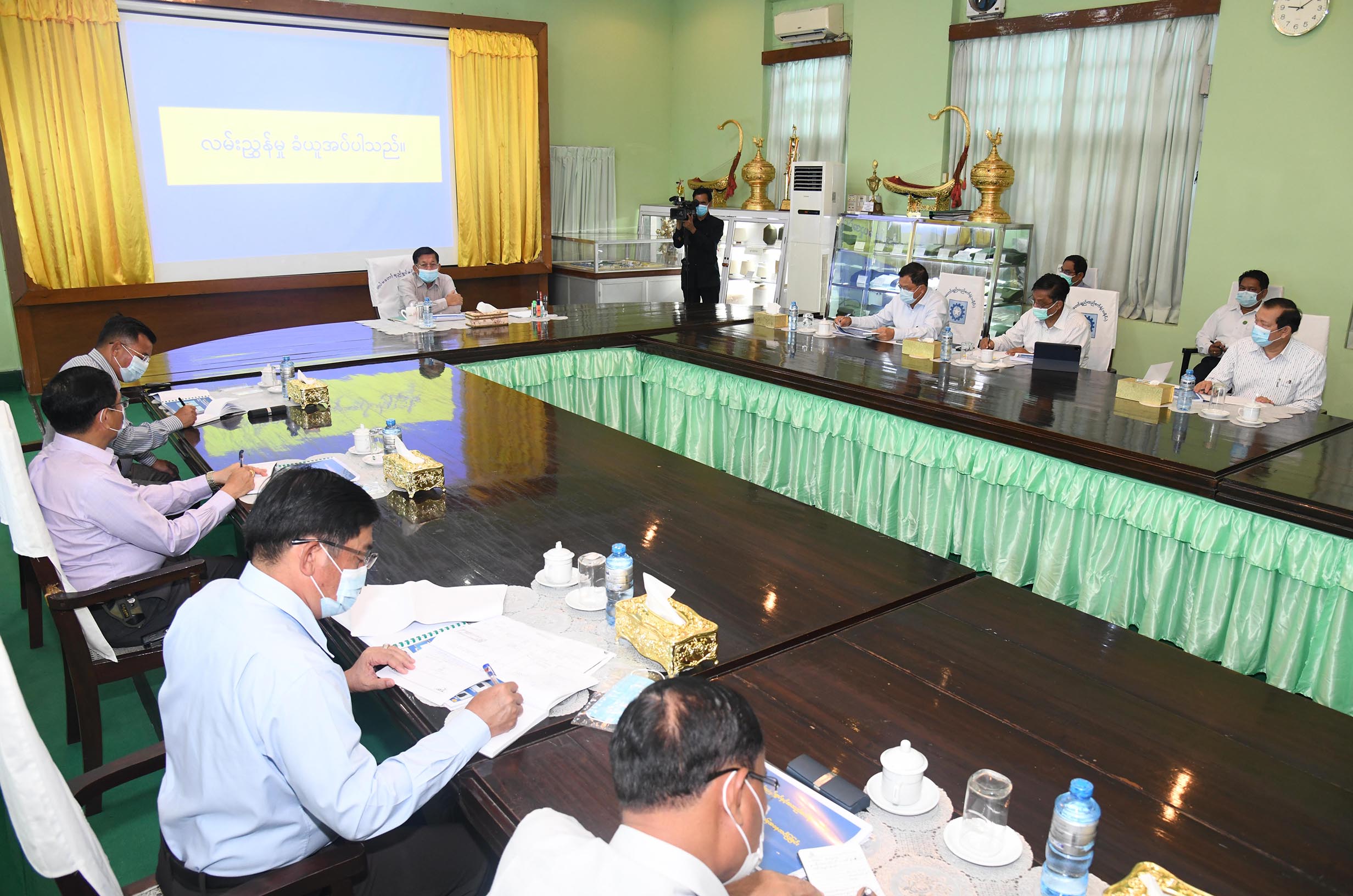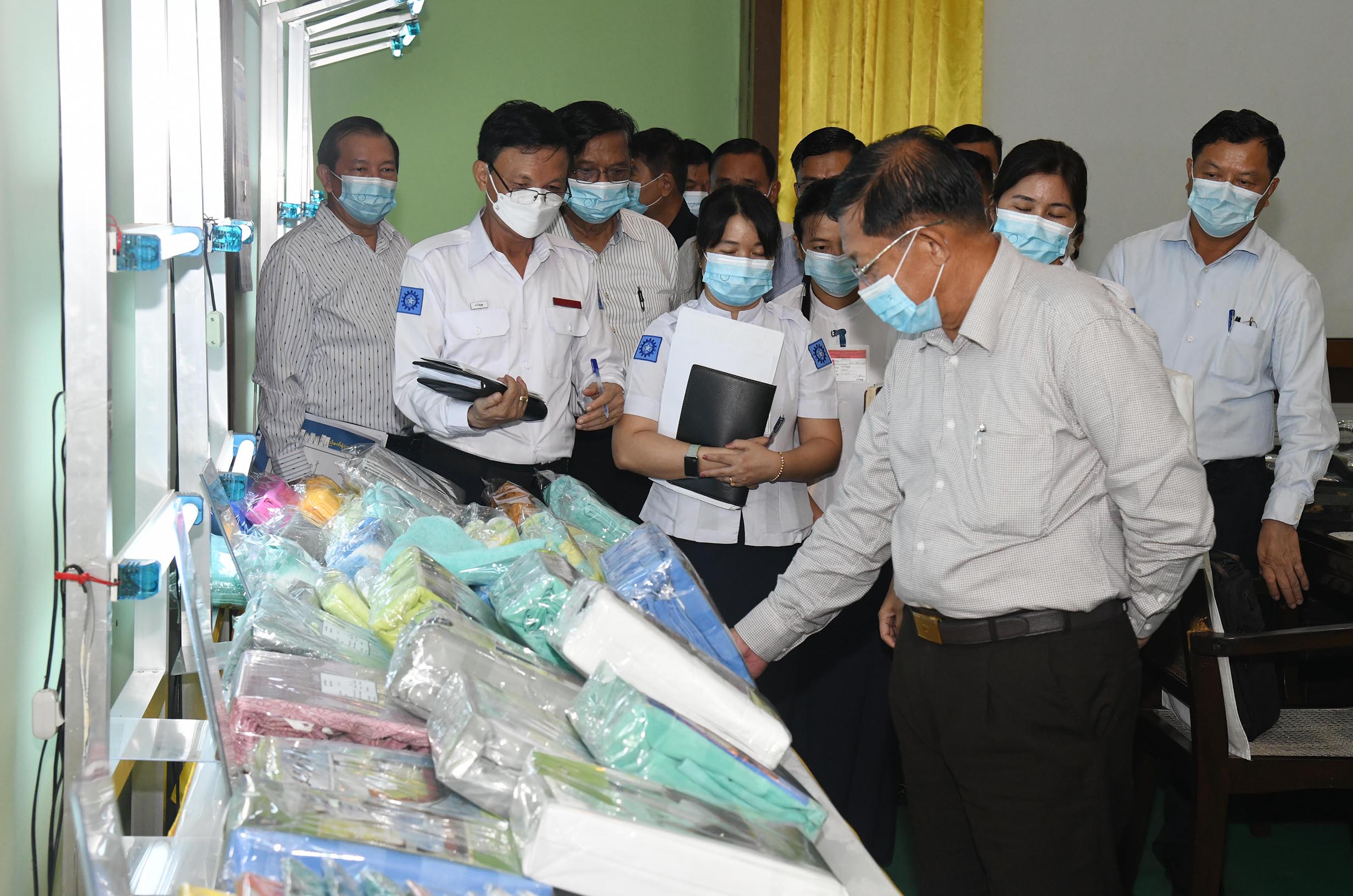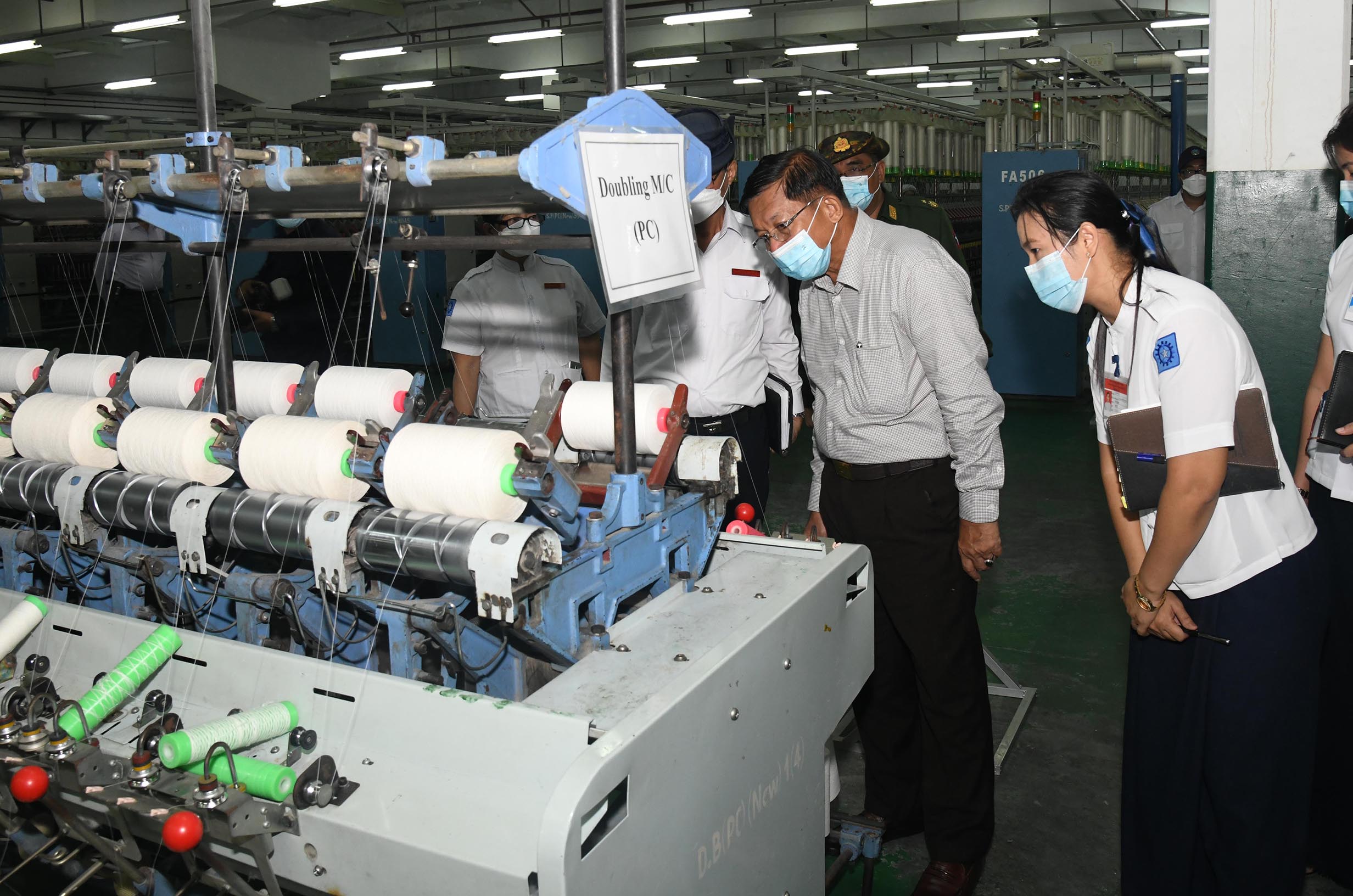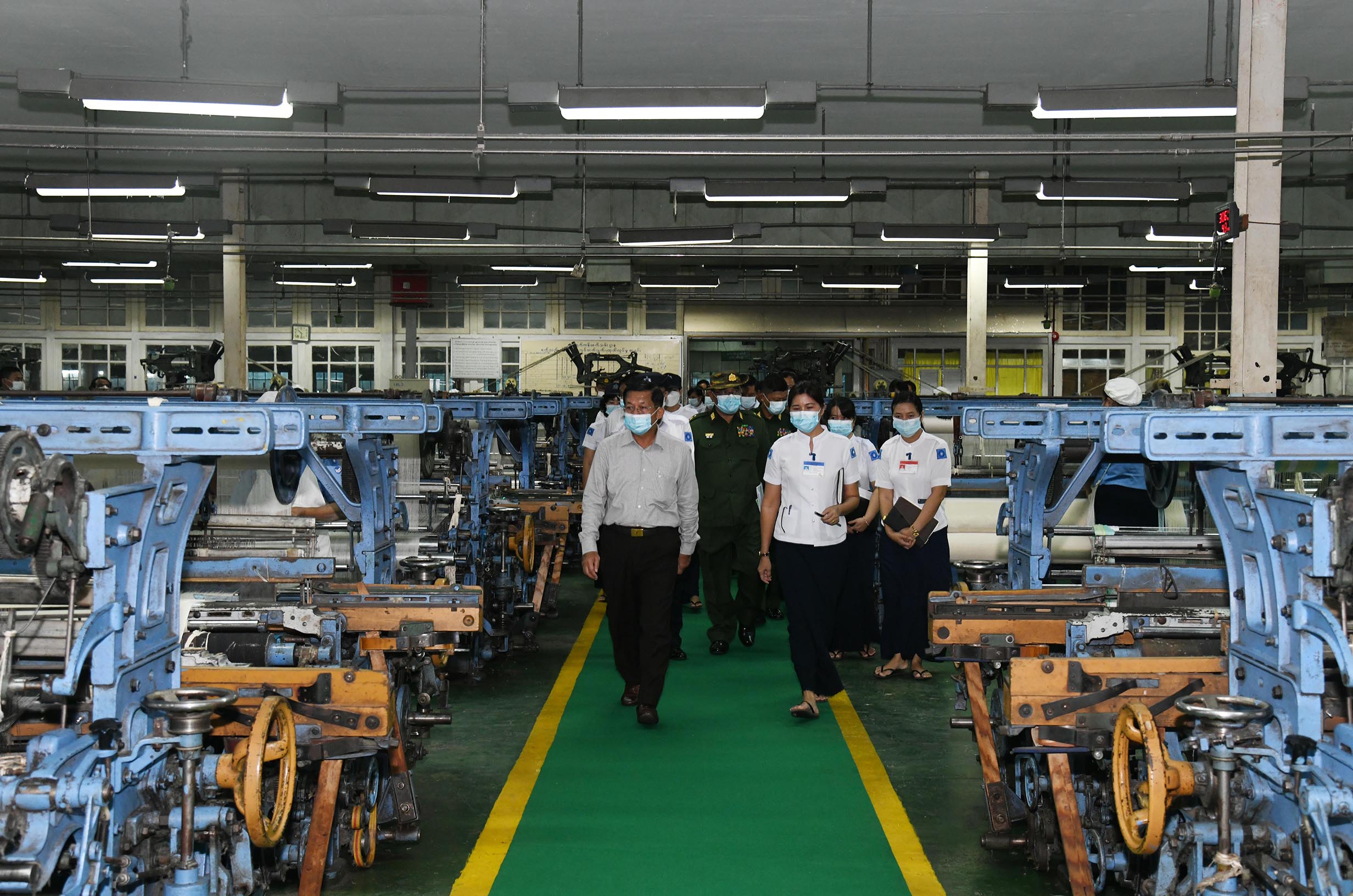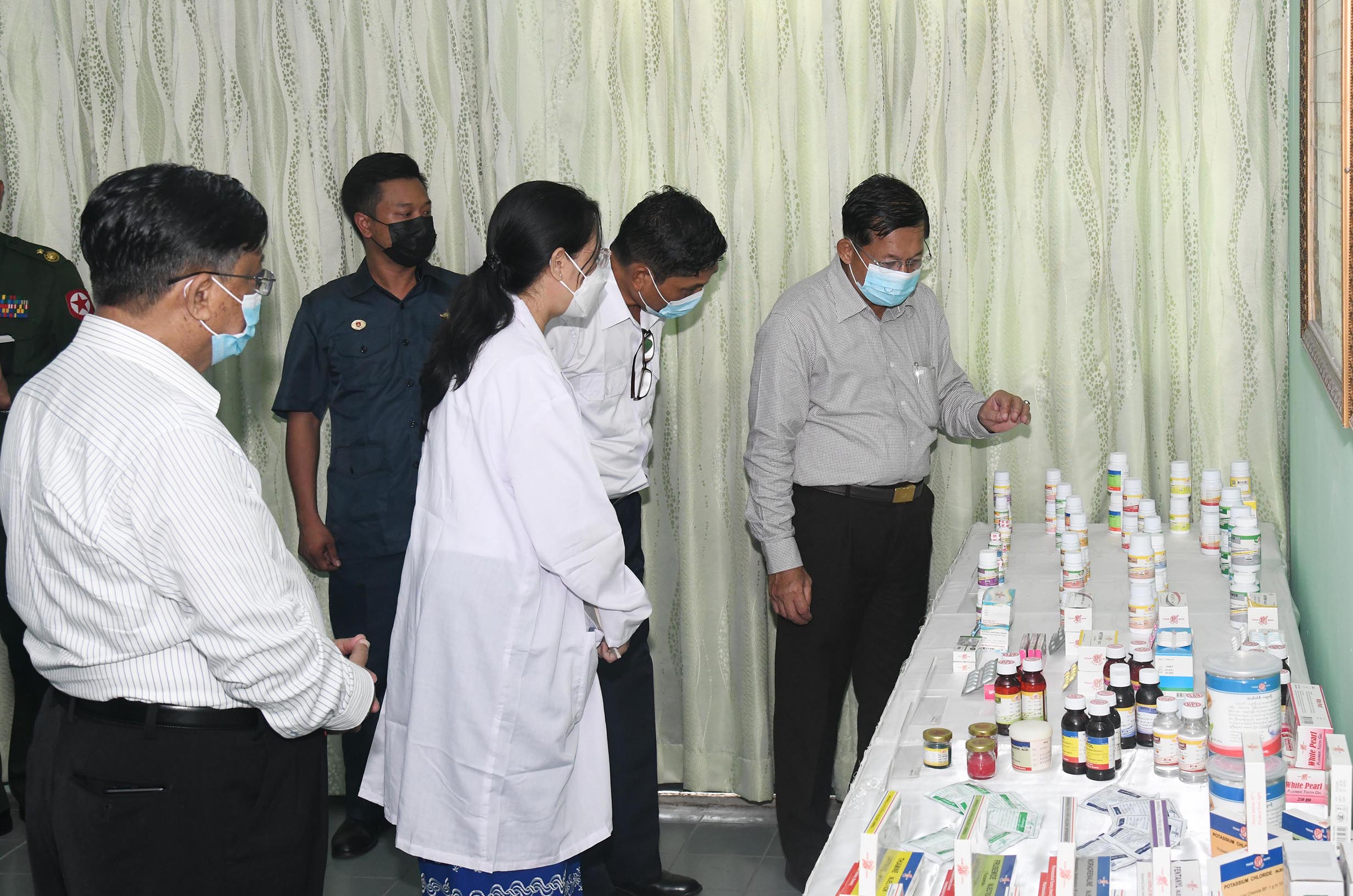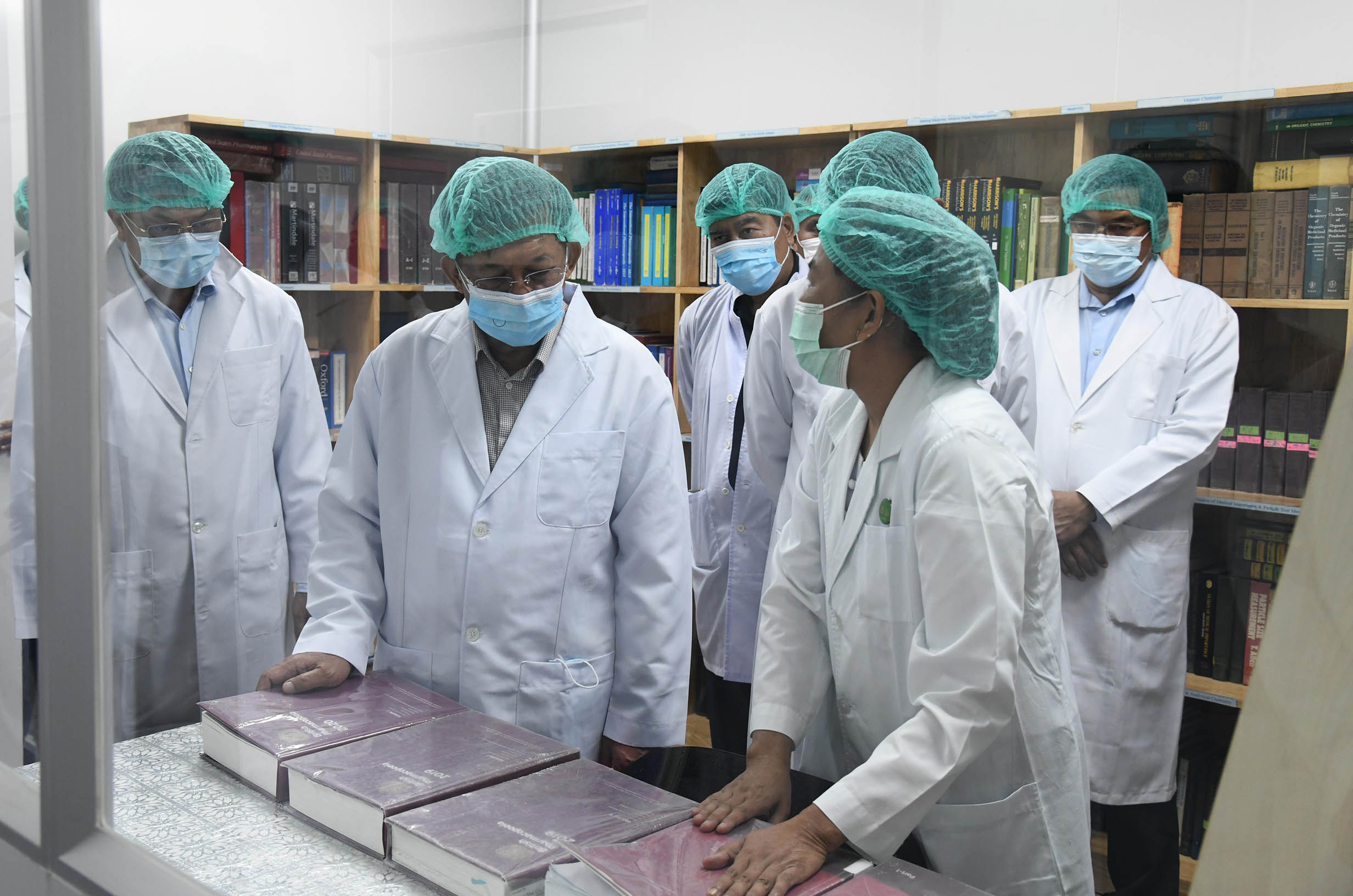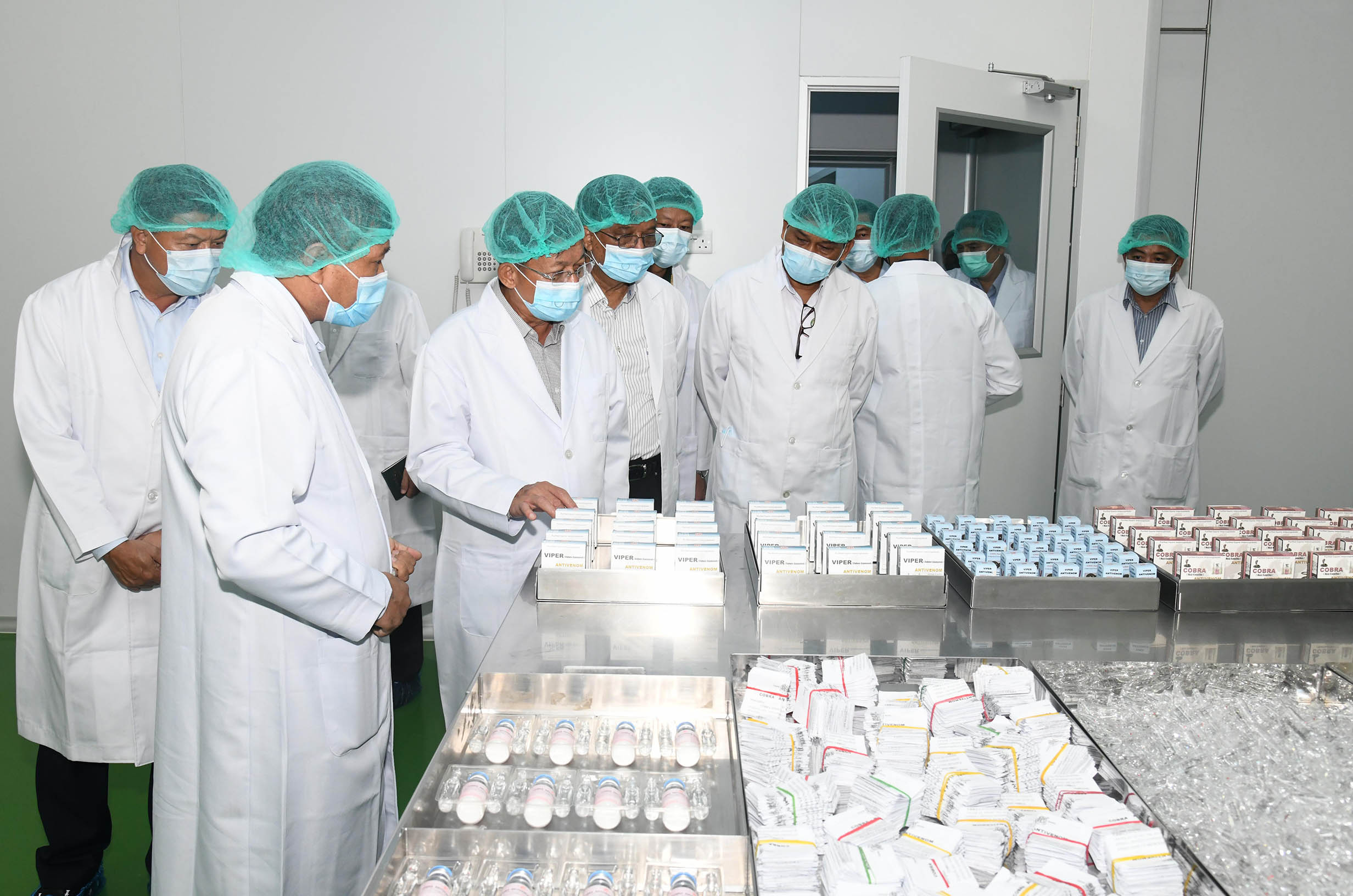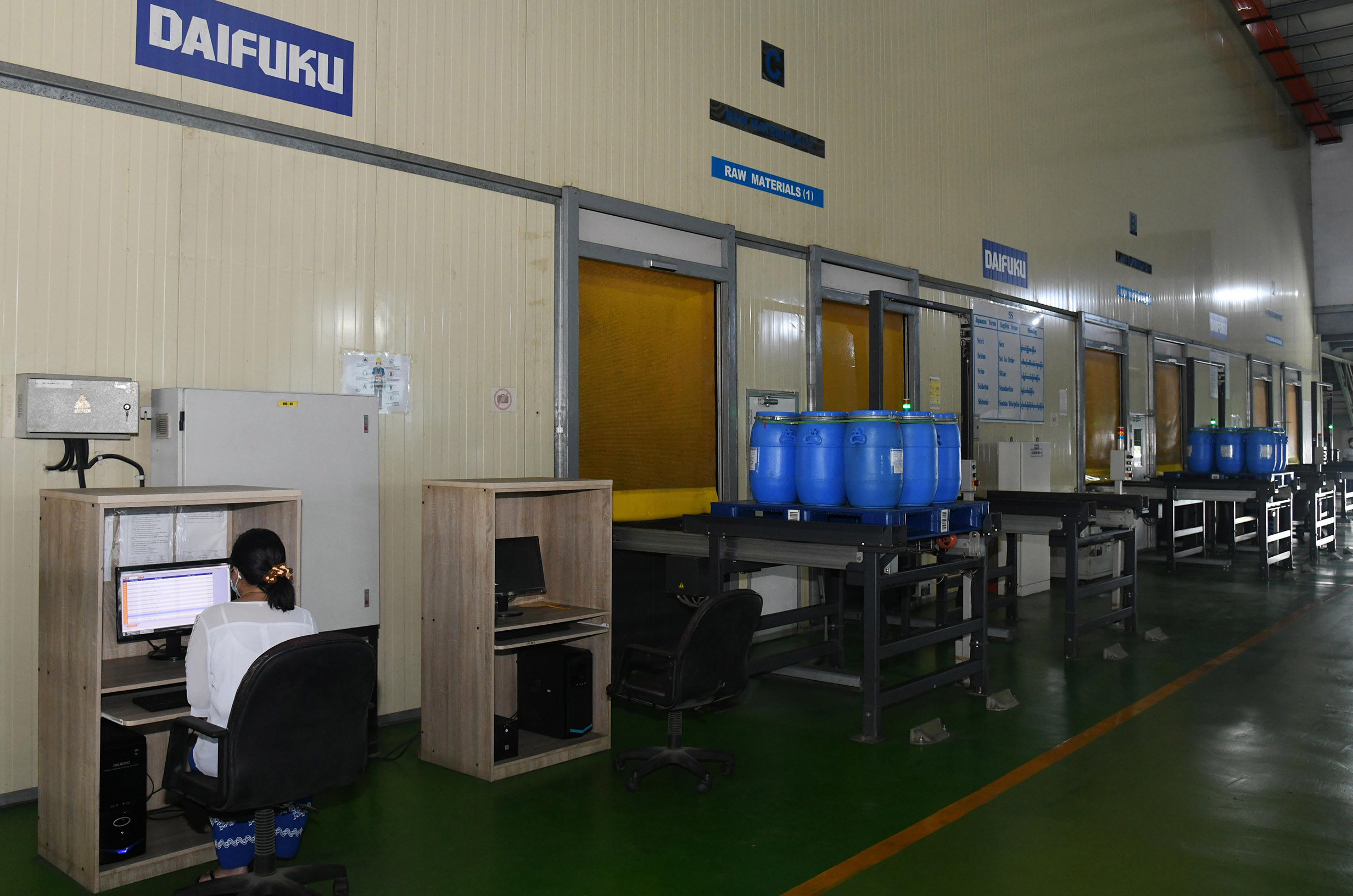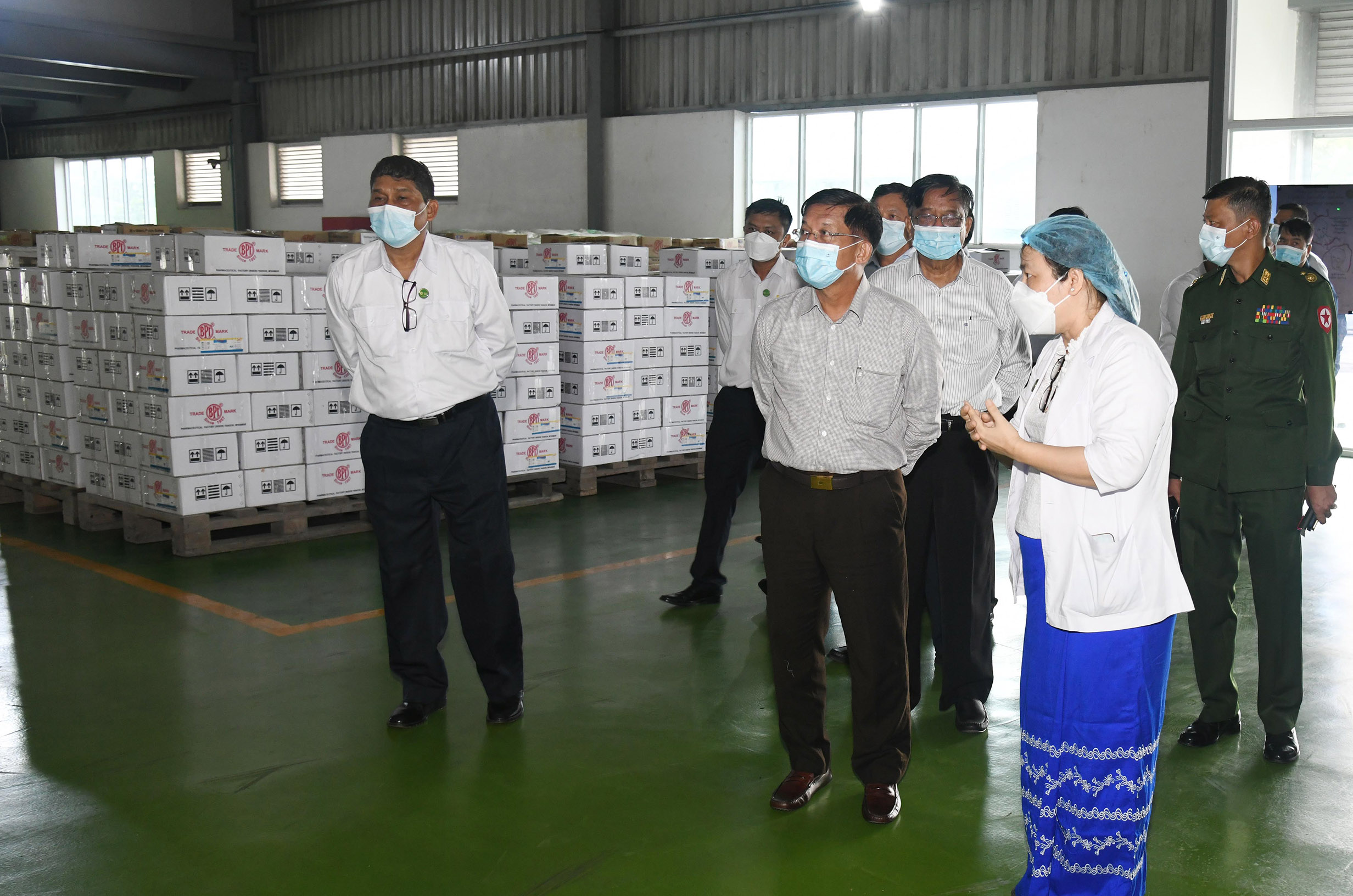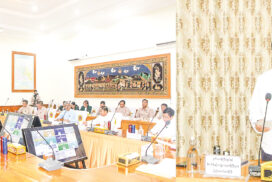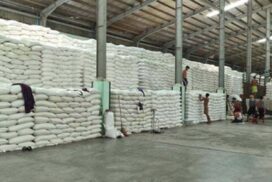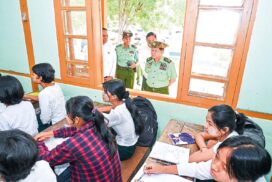Domestic factories need to produce sufficient products to reduce import commodities, said Chairman of the State Administration Council Prime Minister Senior General Min Aung Hlaing on his inspection tour of the Tatmadaw Textile Factory (Thamaing) and Myanmar Pharmaceuticals Factory (Insein) yesterday.
The Senior General heard reports on matters related to the factory, production of quality textile and equipment to meet the demand of the Tatmadaw and the market, arrangements for sales of products to the rural people and ethnic people, production of robes, and staff welfare.
In his response, the Senior General stressed that textile factories are built at home to meet the local demand for tile. Domestic factories need to produce sufficient products to reduce import goods.
Machinery maintenance must be carried out for operating the machines in full swing. It is necessary to sell textiles such as towels, vests, blankets and mosquito nets to rural people and ethnic nationals at fair prices with sufficient production. Quality products must be sent to the domestic market with favourite types. Emphasis must be placed on the production of hotel use products and private utensils for seeking market shares. The government will provide assistance for sown acreage of cotton plantations at home to local farmers. As textile factories are essential for the State, they need to produce goods meeting the State demand and sell them at fair prices to the people.
The Senior General viewed textiles and clothes produced by the factory and the production process of threads and textiles.
The Tatmadaw Textile Factory manufactures quality brown thread, tetrad textile, vests, towels, robes, T-shirts, sports shirts, bandages and beds in addition to various kinds of textiles in multicolour to meet the demand of the Tatmadaw and the domestic market.
At Myanmar Pharmaceuticals Enterprise (Insein), factory manager U Thaung Oo reported production of snake venoms, use of modern machinery, efforts for prevention of environmental impacts, plan to substitute the imported medicines with local ones, assistance for private pharmaceutical factories, and efforts to produce COVID-19 vaccines at home.
The Senior General said the production of medicines should not focus on just profits but interests for the State and the people. Plans are underway to fully provide health-care services to people from the whole nation. Market research needs to be done for sufficient availability of raw materials for the medicine production and distribution process. The factory needs to take care of environmental conservation meeting the set standards. Quality of medicines and prices must always be compared with that of foreign market. Production of medicines meets the domestic demand and reduces imported medicines so as to cut spending on foreign exchange.
The Senior General and party viewed around snake venom section, antibiotic medicine section, quality control section, and medical production and inspected the storage of raw materials, finished goods and package materials.
Myanmar Pharmaceutical Factory (Insein) was built on 23 April 1954 and completed on 23 August 1957. It was commissioned into service by former President U Win Maung on 23 April 1958. Prime Minister U Nu posted the monument for the factory in 1954. Currently, the factory following the guidelines of the WHO is manufacturing and distributing 195 reliable items of medicines for the people so as to contribute to the development of the health sector of the nation. —MNA
